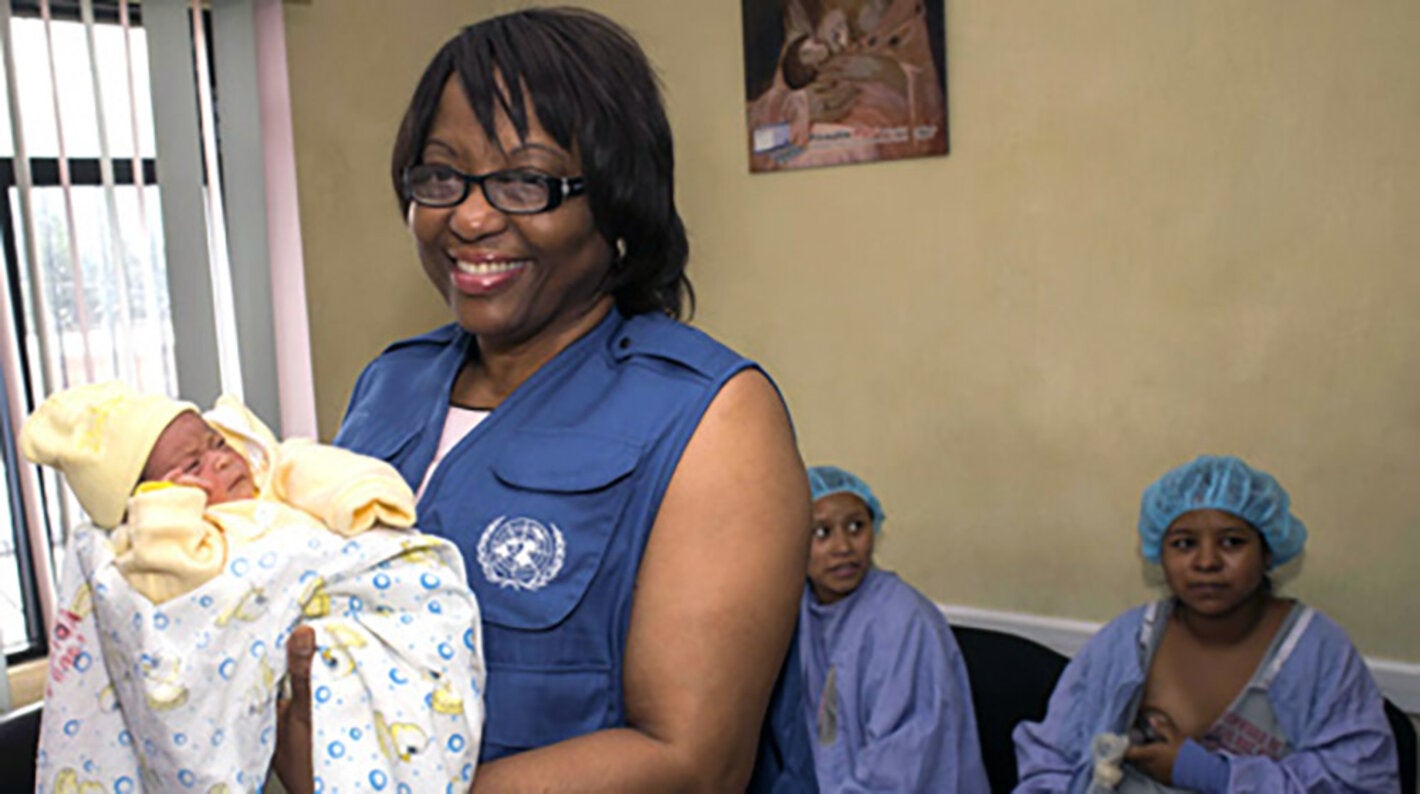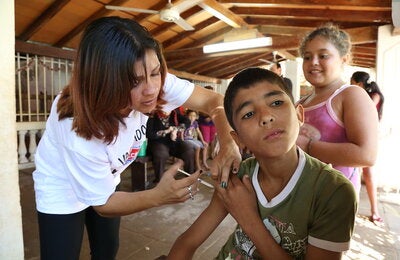
Sacatepéquez, Guatemala, July 18, 2013 (PAHO/WHO) - Guatemala is one of the most advanced countries in Latin America in the implementation of networks of breast- milk banks. This initiative, supported by the Pan American Health Organization/World Health Organization (PAHO/WHO), seeks to reduce neonatal infant mortality and child malnutrition by promoting exclusive breastfeeding in hospitals.
PAHO/WHO Director Dr. Carissa F. Etienne recently visited the country's most advanced breast-milk bank at the National Hospital of Antigua. Guatemala's Ministry of Public Health and Social Welfare works at the national level for official recognition and strengthening of the network of breast-milk banks, as part of the "1,000 Days Window" strategy and the Zero Hunger Plan to reduce malnutrition.
The national initiative began in 2008 within the framework of a technical cooperation project between Guatemala and Brazil, supported by PAHO/WHO. There are currently eight national hospitals with breast-milk banks. In 2012, the country's breast-milk banks served 4,901 donor mothers and 2,256 high-risk newborn children.
A breast-milk bank is a specialized service at a maternity hospital and is responsible for promoting, encouraging, and protecting breastfeeding. It is a service that provides breast milk for high-risk newborns (premature or with some other medical risk) and that serves as a center to promote, protect, and support breastfeeding.



